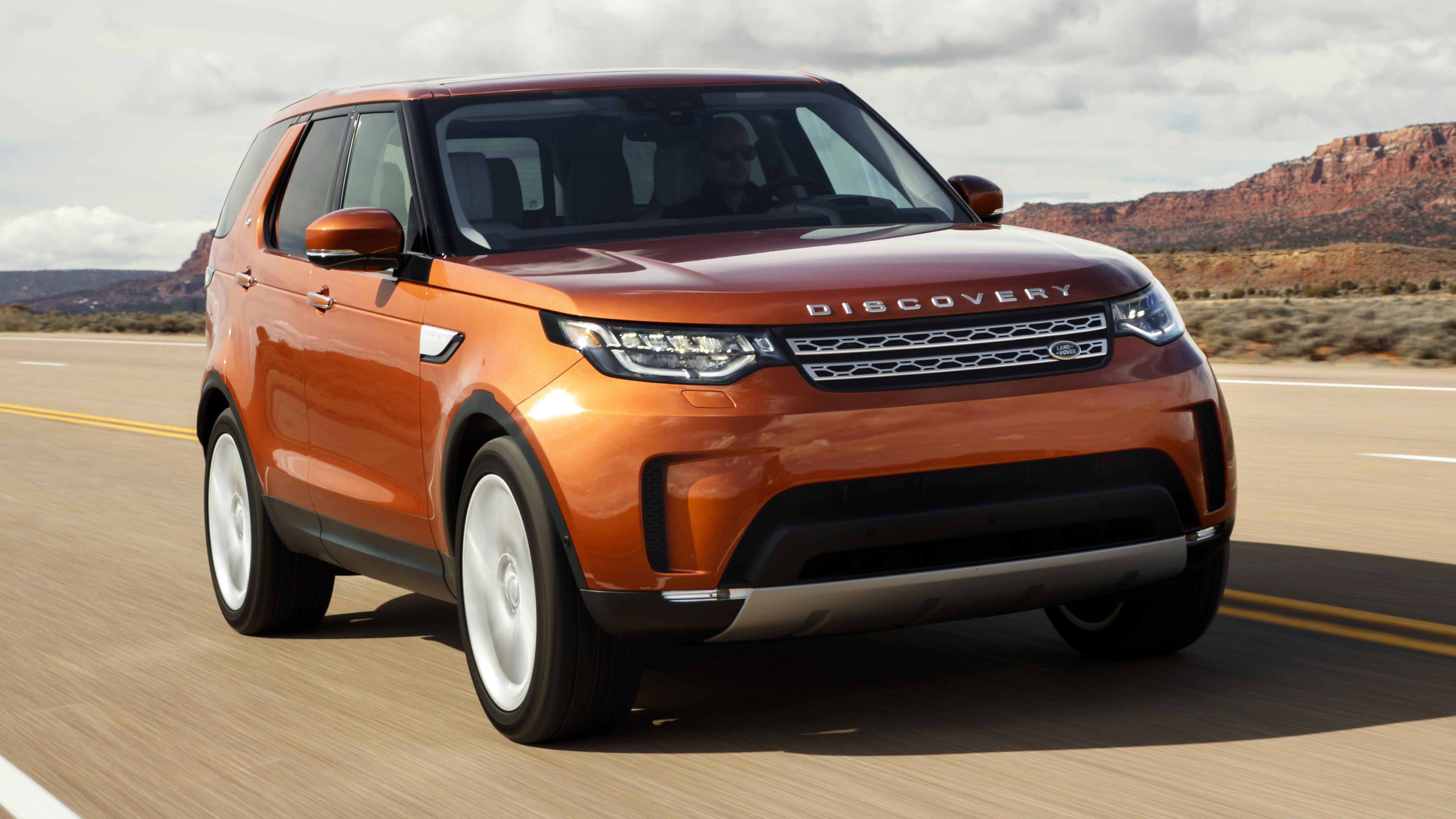
SPEC HIGHLIGHTS
- BHP
258bhp
- 0-62
7.7s
- CO2
189g/km
- Max Speed
130Mph
The new Land Rover Discovery?
Yes. And this Land Rover Discovery is properly all new. Now based on the all-aluminium architecture of the Range Rover, the Mk5 Discovery has extra subframes to support standard seating for seven, plus weight loss of an entirely significant 480kg.
That means it’s lighter, but not light - pushing over 2.2 tonnes is by no means flyweight. Engines are Jaguar-ish: an Ingenium SD4, 237bhp four-cylinder diesel (the first 2.0-litre four-pot option since 1989) sits at the base of the range, managing 43.5mpg. At the top of the range, a small-selling supercharged Si6 petrol V6 produces 335bhp and claims 26mpg.
In the middle, though, is the car we’ve tested here: the TD6 3.0-litre V6 diesel. It produces 258bhp and 443lb ft, with just under 40mpg on the combined fuel cycle. These are perfectly acceptable numbers for a big SUV, though nothing that’ll make your jaw drop.
Performance figures are similarly average: 0-60mph in 7.7secs, 130mph top speed. That said, the Discovery has never been about numbers. It’s always been about hitting a sweet spot between everyday practicality and usability, and a slight whiff of luxury.
So does it manage it?
Short of a dedicated grand tourer, there’s probably no better place to cover miles: some 450-500-miles of range from a full tank, an imperious driving position, enough toys to amuse for days. The version we have here racks up the options to the tune of a purchasing price north of seventy-five grand, mind, but even the lowlier derivatives get decent kit.
It feels much, much lighter than the old one, too. Keener, unafraid of a corner. It’s rock-solid stable at speed, quiet apart from the comforting grumble of that big diesel up front and the bellowing Meridian optional stereo.
Does it do the off-road stuff well?
The new Discovery has all, if not more off-road chops than the car that went before it, a suite of abilities far, far in excess of what 99.9 per cent of owners will actually require of it.
Top Gear
Newsletter
Thank you for subscribing to our newsletter. Look out for your regular round-up of news, reviews and offers in your inbox.
Get all the latest news, reviews and exclusives, direct to your inbox.
With the electronics massaging the throttle response and braking systems, traction control and engine map, you really do get to be semi-pro without all that inconvenient experience-gathering.
There’s even ‘Progress Control’: a kind of off-road cruise control if you’re feeling super-lazy, and even though our car has the optional £1000 ‘Capability Plus pack’ fitted (an active rear differential and the aforementioned PC), you get the feeling you’d have to be really stupid to get stuck.
Oh and the Discovery can wade up to 900mm, a figure chosen for the simple reason that after that, it floats. It really is impressive off-road, this thing, making fibs of Newton’s so-called laws.
More importantly, does it work as a posh people carrier?
It’s a full seven-seater, with second-row seats getting 954mm of legroom and the third row not needing to be worryingly short to find space - there’s 851mm in the far rear, and enough gap for real adults.
It’s also versatile; you can individually fold each rearmost seat, and the second row has a 60/40 split, recline and load-through facility. Heated seats are available all the way through, and you can have headrest-mounted screens, or just opt for the optional iPad holders. Handy.
There’s also help if you need the space and are peculiarly weak in the wrist, because you can always option the Intelligent Seat Fold system, which allows you to electrically raise and lower the seating to any spec from the dash touchscreen, boot-mounted buttons or a phone app.
What do you think of the looks?
The Discovery has a reputation as a people-moving seven-seater with practicality to spare, and a kind of bluff aesthetic that appeals on several visceral levels. The new one, however, is smoother. More urbane. Arguably less… Discovery-ish.
The new one has been styled under the direction of LR’s design boss Gerry McGovern, and has smoothed itself away from the blocky brutalism of the Disco 4, and into something much more generic.
The big stepped roofline is all but absorbed, the front and rear chamfered into a slipperier shape. There’s still a chunky look to it, but it’s more than a bit fraternally related to the smaller Discovery Sport. Both a good and a bad thing.
And that rounded bottom has deleted the split tailgate from the old model. Yes, you still get a kind of carpeted internal flap that drops down when you open the boot (which will support a decent 300kg), but really, it’s not the same.
You’ll have your own opinions on the styling though. Feel free to tell us them below.
Final thoughts?
It’s an extremely accomplished vehicle. You really can seat seven adults in it, do proper things, live active lifestyles. It hits all the right notes in terms of performance and handling, has a lovely, cosseting interior and levels of comfort on the daily grind that mean you’d think nothing of a 700-mile journey in it. In one day. Even if it doesn’t fully look like one, this seems to be a Discovery in every other sense.
Featured

Trending this week
- Car Review
BMW iX3




